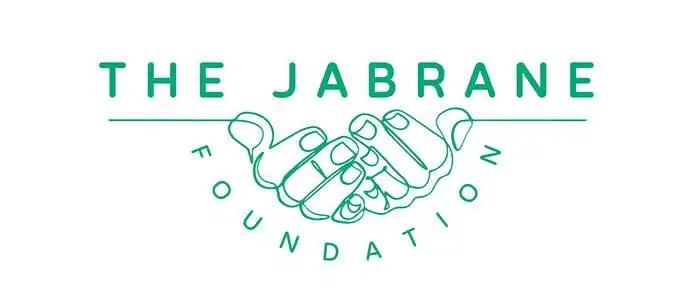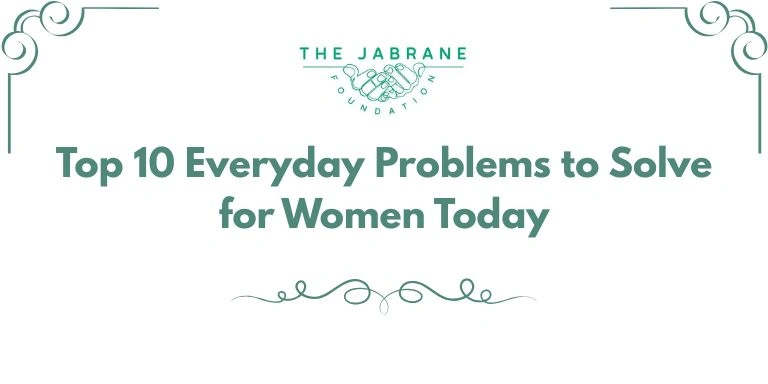Women today face numerous challenges that are deeply ingrained in society. These everyday problems range from the pressures of managing multiple roles in personal and professional life to overcoming gender biases, financial insecurity, and health struggles. Tackling these issues is essential for creating a more equitable world for women. Organizations like the Jabrane Foundation are working tirelessly to provide women with the resources, support, and opportunities they need. In this article, we’ll explore 10 critical issues women face today and how collective efforts can help resolve them.
Work-Life Balance Struggles
Balancing work, family, and personal life is one of the biggest problems to solve for women. The pressure to excel in both personal and professional spheres can often feel overwhelming. Women are expected to meet high standards in every aspect of life, leading to stress and fatigue.
Juggling Career and Family
Women face unrealistic expectations to be successful in both their careers and as caregivers. This constant juggling act can lead to stress, guilt, and exhaustion. The idea that women should excel at home and in the workplace, without any support, is an unrealistic standard. In many cases, this results in women feeling they need to sacrifice one area of their life for the other, whether it’s their career or their family responsibilities.
Practical Solutions for Balance
Workplace flexibility and support at home are essential to help women manage their responsibilities and find balance. Community programs can also provide valuable support. Encouraging employers to offer flexible working hours, remote work options, or paid family leave can significantly reduce the strain. On the home front, shared responsibilities with partners or family members can allow women to manage their careers and household duties more effectively.
Financial Independence Challenges
Achieving financial independence remains a major challenge for women, especially due to the gender pay gap and limited access to financial education. Women’s ability to manage their finances and plan for the future often gets undermined by systemic inequalities and fewer opportunities for career advancement.
Gender Pay Gap
Women often earn less than men for the same work, which limits their financial freedom and long-term financial security. The gap becomes even more pronounced when factors such as race and ethnicity are considered. Despite increased awareness, this disparity still persists in many industries and job sectors, and it takes a long-term toll on women’s ability to save, invest, and build wealth.
Improving Financial Literacy
Access to financial education can help women make informed financial decisions, giving them the tools they need to achieve economic independence. Women who understand how to manage their finances, make smart investments, and plan for retirement are better equipped to take control of their financial futures. Financial literacy programs that focus on empowering women can bridge this gap and set them on a path to greater financial security.
Health and Well-being Issues
Women face both physical and mental health challenges that can affect their daily lives, from limited healthcare access to mental health struggles. Gender biases in healthcare can make it difficult for women to receive the treatment and support they deserve.
Healthcare Access
Women often experience biases in healthcare, leading to misdiagnosis or delayed treatments, making it harder for them to get the care they need. From reproductive health to heart disease, women’s health concerns are often overlooked or misunderstood. The lack of equal representation in medical research also means that treatments may not be tailored to women’s unique needs, leading to poorer outcomes in many cases.
Mental Health Support
Mental health issues like anxiety and stress disproportionately affect women. Greater awareness and support are necessary to ensure women have the resources they need to care for their mental health. Whether it’s the pressures of balancing work and family life or coping with societal expectations, women are at higher risk of developing mental health challenges. Encouraging open conversations, normalizing mental health care, and providing accessible resources can help address this issue.
Safety and Security Concerns
Personal safety is a daily concern for many women. They should feel safe in their homes, workplaces, and public spaces, but often don’t. Gender-based violence and harassment are still major issues affecting women worldwide.
Daily Safety Fears
From harassment to the fear of violence, women often face safety issues in their everyday lives that can limit their freedom and sense of security. Whether it’s walking home late at night, traveling alone, or simply navigating public spaces, women are frequently on guard. This constant fear can lead to anxiety and feelings of powerlessness, preventing women from fully enjoying public life and opportunities.
Legal Protections
Women must have access to legal protections and resources to defend themselves against violence and abuse. Awareness of these resources is essential. Legal systems should prioritize the protection of women’s rights and offer accessible support. Resources such as domestic violence shelters, legal aid, and helplines can provide vital support for women facing violence. Stronger laws and more significant penalties for violence against women will help create a safer environment.
Gender Bias and Stereotypes
Outdated societal norms and gender biases still limit women’s opportunities and roles in many aspects of life. Gender stereotypes are ingrained in nearly every aspect of society, from media to education to the workplace.
Breaking Stereotypes
Cultural expectations about what women can and should do often limit their opportunities and freedom. These stereotypes can limit women’s choices in careers, hobbies, and even personal relationships. For example, women may feel pressured to pursue traditionally feminine roles and avoid leadership positions or careers in fields like STEM. Challenging these norms is essential for creating an environment where women can thrive in any role.
Empowering Women
Encouraging women to challenge these norms can help create more opportunities for them to succeed in any field, from leadership to STEM. Empowering women to pursue careers, passions, and leadership roles beyond traditional gender roles will not only benefit them individually but also help society at large. Encouraging female role models, mentorship programs, and inclusive environments helps break down these barriers.
Education Barriers
Education is one of the most important tools for empowering women, but many still face barriers to accessing quality education. Whether due to cultural expectations or financial constraints, many women are denied the opportunity to pursue their educational goals.
Barriers to Education
In many regions, girls and women face cultural and societal obstacles that prevent them from pursuing education, limiting their life choices and future opportunities. These barriers can include early marriages, lack of infrastructure, or societal beliefs that prioritize male education over female education. As a result, many women are denied the chance to develop their full potential, which limits their ability to succeed in the workforce and their personal lives.
Educational Support
Access to scholarships, mentorship, and community-driven educational programs can break down these barriers and help women achieve their educational goals. When women are empowered with education, they are better equipped to make decisions about their health, family, and careers. Educational initiatives that target young girls and women can help close this gap and set them on the path to empowerment.
Workplace Inequality
Despite progress, workplace inequality remains a significant issue, from unequal pay to a lack of women in leadership roles. Many women still face barriers to advancing in their careers due to systemic discrimination.
Gender Discrimination
Women are often discriminated against in the workplace, whether through unequal pay, missed promotions, or bias in hiring and leadership roles. The “glass ceiling” phenomenon continues to limit women’s progress in many industries, particularly in leadership and decision-making positions. This discrimination, often unacknowledged, can have lasting impacts on women’s career advancement and financial security.
Inclusive Workplaces
Creating inclusive workplaces where women are given equal opportunities is crucial to ensuring they have the same chances for career advancement and success. Employers must actively promote equality by offering equal pay for equal work, creating leadership development opportunities for women, and ensuring a culture of inclusivity and support. Women should be given a fair shot at leadership roles and promotions based on their skills, not their gender.
Parenting Challenges
Parenting can be a difficult and overwhelming journey, especially when balancing work and personal life. Women often carry the brunt of the responsibility, leading to added stress and fatigue.
Balancing Parenthood
For many women, raising children while maintaining a career and managing household responsibilities can be exhausting and overwhelming. The societal pressure to be a “perfect” mother while juggling professional duties can create unrealistic expectations. Balancing these competing responsibilities can negatively impact women’s mental and physical health, making it essential to create supportive environments for mothers.
Support Systems
Providing affordable childcare, mental health support, and flexible work options is vital to helping women balance their parenting responsibilities with their personal and professional lives. Supportive policies, such as paid parental leave and accessible child care, can help relieve some of the pressures mothers face.
Building Confidence
Many women struggle with self-doubt and imposter syndrome, making it hard to achieve their personal and professional goals. Without confidence, women may not seize opportunities or assert themselves in the face of challenges.
Overcoming Self-Doubt
Self-confidence can be a major hurdle for women, especially when societal pressures and personal doubts make them question their abilities. Many women experience “imposter syndrome,” where they feel they don’t deserve their success, even when they are qualified. Overcoming these feelings requires encouragement, recognition of their achievements, and a support network that helps women believe in their capabilities.
Mentorship and Empowerment
Mentorship programs and peer support can help women build confidence, overcome self-doubt, and take on leadership roles in their communities and workplaces. When women are empowered through mentorship, they can better navigate challenges and grow into their full potential. Surrounding women with role models who offer guidance and encouragement can help them overcome their doubts and build their self-esteem.
Conclusion
The problems to solve for women are vast, but with the right support and resources, these challenges can be overcome. From work-life balance to financial independence and access to education, tackling these issues can pave the way for a more equitable world for women.
If you want to help create a brighter future for women, we encourage you to support initiatives that address these issues. Your donation can make a difference. Visit Jabrane Foundation today to learn how you can contribute to empowering women and supporting their journey toward equality and success. Together, we can make a lasting impact.


